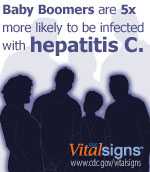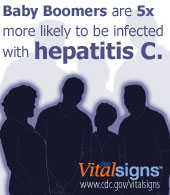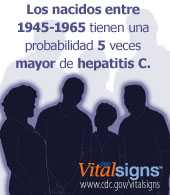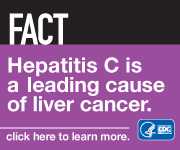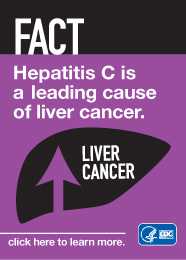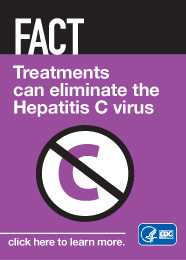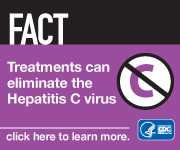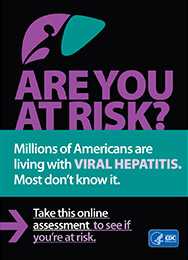Hepatitis C
Hepatitis C is a liver disease that results from infection with the Hepatitis C virus. It can range in severity from a mild illness lasting a few weeks to a serious, lifelong illness. Hepatitis C is usually spread when blood from a person infected with the Hepatitis C virus enters the body of someone who is not infected. Today, most people become infected with the Hepatitis C virus by sharing needles or other equipment to inject drugs. Before 1992, when widespread screening of the blood supply began in the United States, Hepatitis C was also commonly spread through blood transfusions and organ transplants.
Hepatitis C can be either “acute” or “chronic.” Acute Hepatitis C virus infection is a short-term illness that occurs within the first 6 months after someone is exposed to the Hepatitis C virus. For most people, acute infection leads to chronic infection. Chronic Hepatitis C is a serious disease than can result in long-term health problems, or even death.
There is no vaccine for Hepatitis C. The best way to prevent Hepatitis C is by avoiding behaviors that can spread the disease, especially injection drug use.
- Page last reviewed: April 2, 2013
- Page last updated: December 23, 2013
- Content Source:
- Centers for Disease Control and Prevention
- Page maintained by: Office of the Associate Director for Communication, Division of Public Affairs


 ShareCompartir
ShareCompartir

